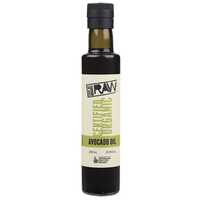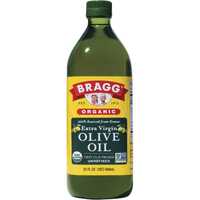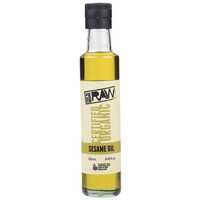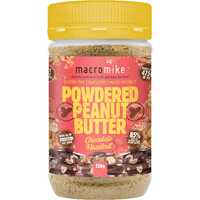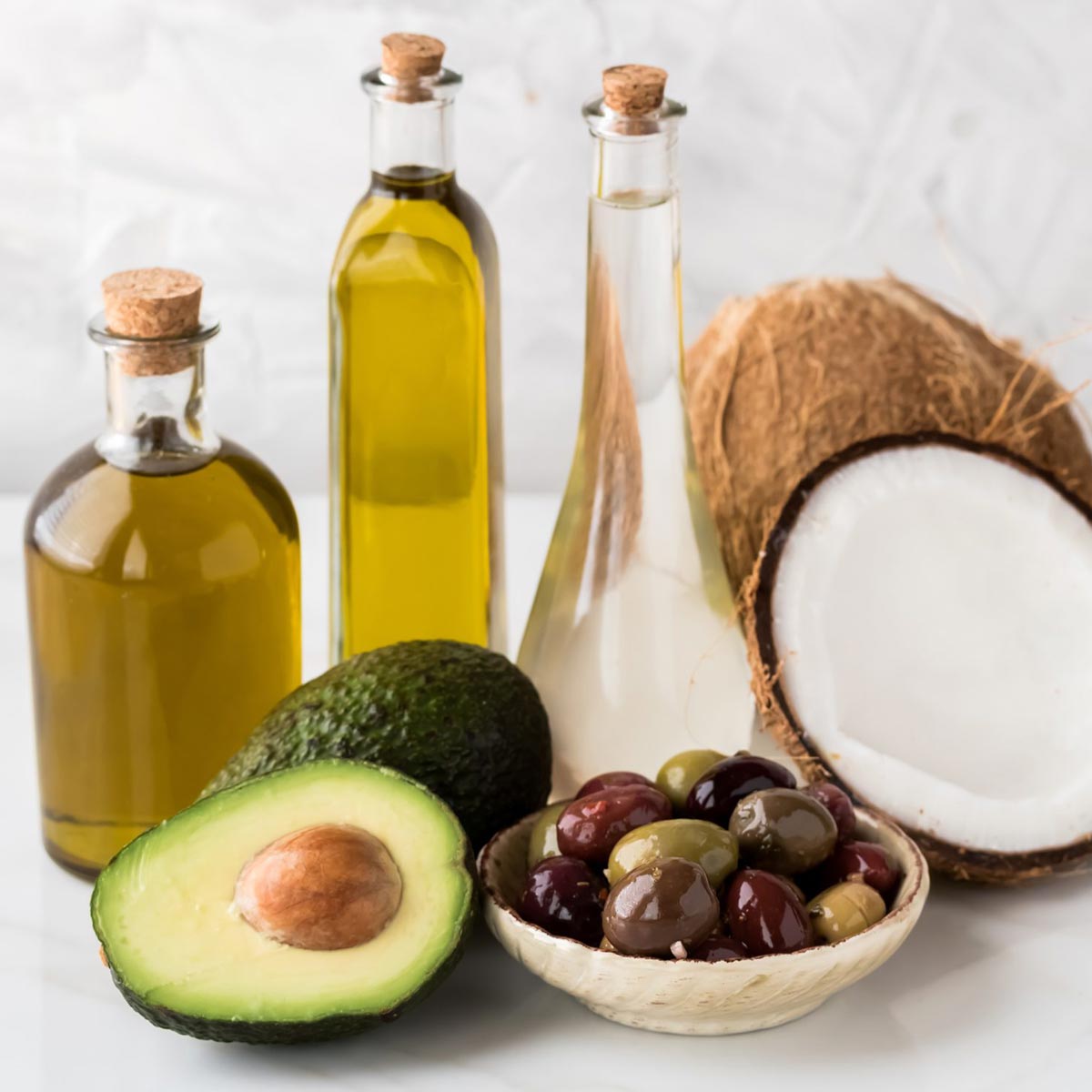Oils play a vital role in cooking, with lots of nutritious and delicious products used around the world. Oils can be used throughout the cooking process, from the early stages of food preparation to mixing, frying, baking, and serving. When choosing oils, there are lots of issues to consider, from taste and nutrition to the cooking process itself. The best oils taste great, add lots of beneficial fatty acids and antioxidants, and give you the freedom to cook over high heat.
Let's take a detailed look at cooking oils, including their extensive history and nutritional importance. From global favourites like olive oil and sesame oil to avocado oil, hemp seed oil, and coconut oil, we'll look at five of the healthiest oils on the market.
What is Cooking Oil?
Cooking oil is a broad term that describes all liquid fats used during the cooking process. They can be derived from plants or animals, and there are also a number of synthetic variations available. Cooking oils fulfil a range of functions before, during, and after cooking. They can be used to produce marinades, applied during frying and baking, and added to foods as salad dressings and condiments at the table.
While cooking oils are generally liquid at room temperature, some products contain solid saturated fats. Most popular cooking oils are vegetable oils, including olive oil, palm oil, canola oil, and peanut oil. Butter and lard are animal-based oils, and many margarine products are either synthetic or semi-synthetic in nature. Along with aiding the cooking process, oils can also be added to improve the flavour of certain foods. In some cases, they are flavoured with aromatic herbs and additional ingredients like chillies and garlic.
A Short History of Cooking Oils
Human civilisations have long used edible oils for cooking purposes. From ancient Egypt and China to the new world and beyond, cooking oils are linked with all global cuisines. The production of oil probably began with the birth of fire, when oily plant products could be heated over extended periods to extract the oil within.
There is evidence of olive oil production in southern Europe from around 3000 BC, and soy oil was produced as early as 2000 BC in China and Japan. Things were a little different in the Americas, where peanuts and sunflower seeds were roasted, made into a paste, and boiled in water to produce oil on the surface. Cooking oils were made in a similar way throughout Africa, where palm kernels and coconuts were beaten and boiled, and hot oil was skimmed from the surface.
The production of oil has been refined and industrialised over the ages, with new innovations and technologies making it easier for people to produce high-quality cooking oils. Key advances include the mortar and pestle from various cultures, the grind and winch from ancient Rome and Greece, and different presses from Europe during the 17th and 18th centuries.
Solvents were used to extract oils in the 19th century, as the manufacturing process improved and scaled up. It's worth noting, however, that some of the world's healthiest oils involve very little technology whatsoever. For example, olive oil and coconut oil are produced simply by squeezing the oil from the flesh of the fruit.
Why Cooking Oil is Used
Cooking oils fulfil a range of functions when it comes to preparing, cooking, and serving food. For example, oils can be used to create sauces, relishes, and marinades, among other condiments. Adding oils to food is also common when a meal is being served, with a sprinkling of good-quality oil helping to merge diverse tastes and bring out flavour sensations.
When it comes to cooking food, oil serves a range of vital functions. First and foremost, oils are used to conduct heat. Because they're a liquid, they connect with individual food ingredients and increase the heated area of the food surface. As a liquid fat, cooking oils are also an important flavour carrier, with certain oils known to bring out the tastes of specific cuisines.
Oils also serve a very practical purpose when it comes to cooking. Oils make it easier to manipulate food, and they also help to prevent ingredients from sticking to the cooking vessel. Last but certainly not least, cooking oils facilitate the Maillard reaction, which describes the production of a golden crusty surface on many fried foods.
Why Good Cooking Oils Matter
Oils play a vital role in the cooking process. From taste and nutritional benefits to smoke point and oxidation considerations, the right oils will improve the flavour of your food and allow you to unlock the goodness within. The following considerations are key:
Taste
Good-quality oils taste better, and depending on which ones you choose, they offer a variety of rich and distinctive taste sensations. Particular oils and foods are often combined, such as olive oil for Mediterranean cuisine, avocado and hemp seed oils for condiments, and coconut oil for sweet baked goods. Not only do good oils taste great, but they help to boost other ingredients as well.
Nutrition
Along with tasting better, good natural oils offer a variety of nutritional benefits. Cooking oils have a mixture of healthy and unhealthy fats, including saturated fats, trans fats, monounsaturated fats, and polyunsaturated fats. While it's best to avoid trans fats and limit your saturated fat intake, high-quality oils are a fantastic source of beneficial monounsaturated and polyunsaturated fats. Many people avoid chemically extracted oils, with unrefined oils often containing a richer and more balanced nutritional profile.
Smoke point
Along with distinct flavours and nutritional benefits, cooking oils need to be practical. The smoke point of oil is the temperature where it becomes unstable and starts to break down. When this happens, oil begins to oxidise and release potentially damaging free radicals. Heated oils also release a substance called acrolein, which is associated with an unpleasant burnt flavour and may be dangerous to your lungs.
Five of The Best Cooking Oils
When choosing cooking oils, there are lots of options available. If you want to have a positive impact on your health, the following oils are a great place to start:
Olive oil
As the world's most beloved cooking oil, olive oil is a staple in pantries and tables across the globe. Olive oil is incredibly versatile, with its subtle grassy flavour ideal for savoury recipes, sweet baking, and cold dressings alike. When it comes to nutrition, olive oil is rich in vitamin E, which is a powerful antioxidant. It also includes a healthy monounsaturated fat called oleic acid, which may have anticancer and anti-inflammatory properties. The smoke point of olive oil is also ideal, with 176°C great for baking and a wide array of recipes.
Avocado oil
Avocados have grown in popularity over the last decade, with the oil of this delicious fruit increasingly used for cooking purposes. It has a fairly neutral taste, and can be used in much the same way as olive oil. The nutritional composition of avocado oil also shares many similarities with olive oil, including a high percentage of heart-healthy oleic acid fats. Some of the compounds in avocado oil may help to lower blood pressure. Avocado oil has a smoke point of 271°C, which makes it great for deep frying and other forms of high-heat cooking.
Sesame oil
Sesame oil has long been used in Asian cultures, and it's increasingly used across the west. This oil is often used to saute meats, and it works great for dressings and marinades. Dark sesame oil has a fairly strong nutty taste, and untoasted sesame oil has a very neutral flavour. This oil is high in sesamol and sesaminol, both of which are heart-healthy antioxidants. According to studies, these antioxidants may provide neuroprotective effects against certain diseases. Sesame oil has a medium-high smoke point of 210°C.
Hemp seed oil
Hemp seed oil is increasingly popular thanks to growing health awareness in the community. This oil is darker and more intense than olive and vegetable oils, so it's not ideal for all applications. Hemp seed oil is great for roasted veggies, winter soups, and stir-fries, and it also works great unheated as a salad or cereal dressing. This powerful oil is packed with healthy omega-3 fats, which aid with heart health, brain health, and immune system support. It does have a low smoke point at just 165°C, however, so it's not a good choice for frying.
Coconut oil
This delicious oil is loved the world over for its unique taste and nutritional benefits. When used for cooking, coconut oil has a sweet nutty flavour that works great with savoury and sweet dishes alike. It contains a unique composition of fatty acids, including high amounts of the saturated fat lauric acid and lots of medium-chain fatty acids like caprylic and capric acid. Coconut oil has a smoke point of 175°C and is highly resistant to oxidation at high heat, which makes it ideal for frying and other high-heat cooking methods.
If you want to supercharge your health with natural cooking oils, Healthy Being has lots of great options available. From everyday meals to baking adventures, from dressings and sauces to woks and frying pans, our oils are perfect for a range of recipes and cooking methods.


 Certified Organic
Certified Organic Vegan Friendly
Vegan Friendly  Vegetarian
Vegetarian Organic Ingredients
Organic Ingredients Dairy Free
Dairy Free Gluten Free
Gluten Free Keto Friendly
Keto Friendly


























